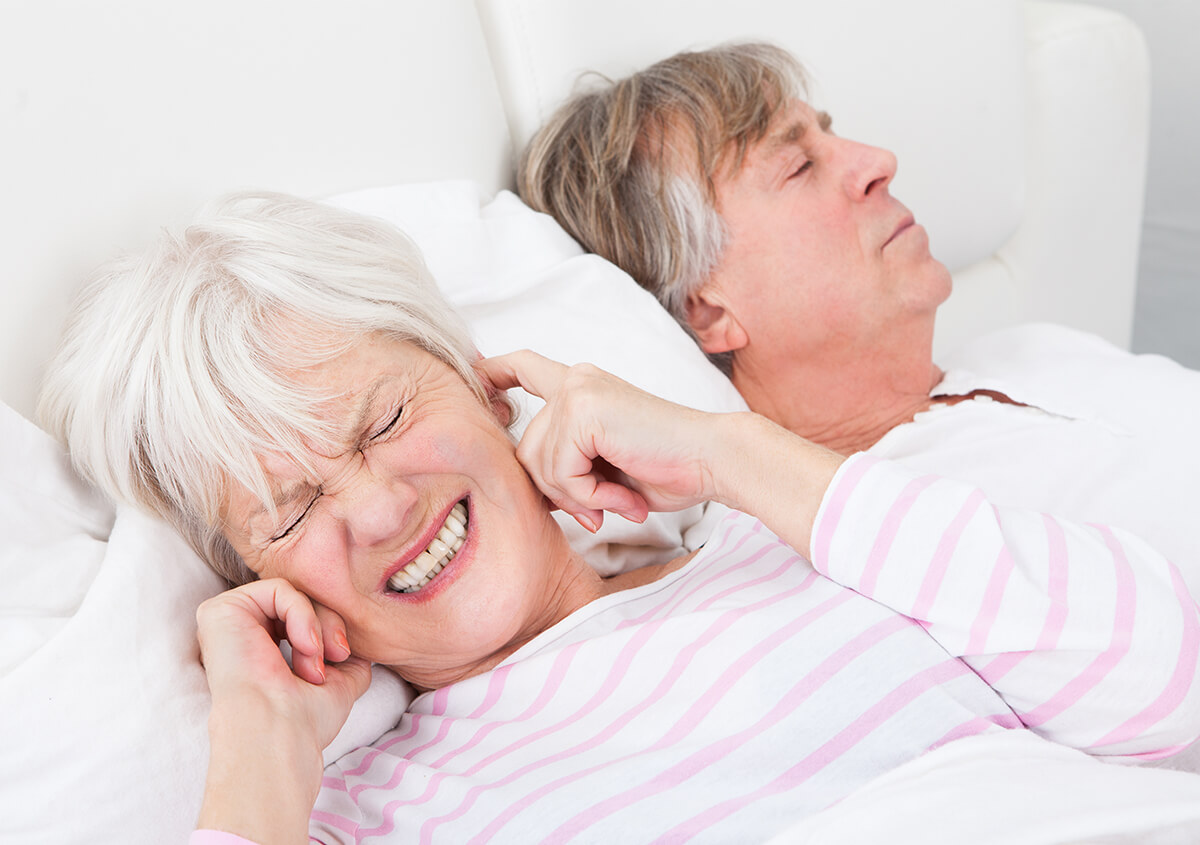Effective snoring and apnea relief helps rescue relationships and restores sleep
A dental office may seem like an unlikely place for treating sleep disorders; however, Dr. Frederick Asuncion has the advanced training and technologies to resolve sleep-disordered breathing (SDB) effectively. His office, Asuncion Dental Group in Frederick, Maryland, may enhance the quality of your (and your sleep partner’s) life with “snoreguards.” Or, he may determine that your snoring is actually a symptom of a serious SBD and medical condition: Obstructive Sleep Apnea.
Treat-able problems at the dentist’s office
Snoring occurs when a person’s relaxed throat muscles and tissues vibrate against the narrowed airway during sleep. This vibration results in that characteristic rattle or “snore.” We all snore at some point in our lives. Often, it is not a cause for concern. However, relationships often suffer among those “primary” chronic snorers. Snoring can cause strain between partners and interfere with the entire household’s ability to get uninterrupted, quality rest.
Snoring may also be “secondary” in nature, occurring as the result of another condition. If, for instance, your snoring is particularly loud and is accompanied by gasps or snorts, you may have Obstructive Sleep Apnea. Among those with OSA, muscles and tissues become so lax as to block the airway. OSA patients may cease to breathe dozens of times per hour of sleep! Plus, since they never get quality sleep, these patients are chronically fatigued, which puts them at increased risk of accidents on the road or at the job. OSA and SDBs, in general, place extreme stress on the internal organs as well. So, it is a risk factor for conditions ranging from diabetes to stroke. In turn, suspected cases of OSA demand thorough evaluation and prompt treatment.
Treatment options
Depending on what Dr. Asuncion finds during an evaluation, he may recommend an oral appliance that is commonly called a “snoreguard.” This appliance is customized to your unique anatomical features. Prior to sleep, you will slip the snoreguard into your mouth. It alters the position of the tongue or jaws and, in turn, the placement of tissues. With tissues repositioned and out of the way, they won’t interfere or make contact with the airway. In this manner, the tissue can’t vibrate against the airway and produce those grating snore sounds.
Among those with OSA, similar appliances can be customized to prevent the tissues from blocking the airway and interfering with your ability to breathe safely and healthily through the night. For patients with more serious cases of OSA, CPAP therapy is highly effective; however, compliance can be an issue.
Contact us so we can support a healthy and restful sleep for you and your family! Schedule your evaluation today.



